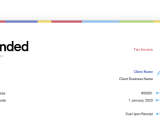
Why comprehensive credit reporting is good news for freelancers
We've been working with our friends from the financial comparison site Mozo.com.au to understand the changes to credit reporting coming into effect on July 1, 2018.
Article contents
− +
As a freelancer you lead a pretty busy life, so keeping up with banking legislative changes probably isn’t high on your priority list. But from 1 July 2018, Australia is moving to a comprehensive credit reporting model which means that the way your credit history is reported on and reviewed will change. Does this matter?
Well, the move to comprehensive credit reporting is actually a really exciting development for freelancers, especially for those getting closer to major milestones like expanding your business, buying a new car or purchasing a home, which may require you to borrow a large chunk of money.
So here’s a crash course on Australia’s move to comprehensive credit reporting and what it might mean for you.
What is comprehensive credit reporting?
Australia has traditionally used a system of negative credit reporting, which means lenders established a borrower’s liability by looking only at the black marks on their credit history, like missed repayments or loan defaults.
That’s been bad news for many people, including freelancers and the self employed, because it meant that one little slip up could have far reaching consequences, including getting stuck with higher interest rates on a loan, or your application being rejected all together.
In addition to the introduction of the New Payments Platform this year, from 1 July, we’ll have shifted to comprehensive credit reporting or CCR, which means lenders will have access to a wider scope of your financial history, both the good and bad. That includes the number of credit accounts you hold, when you opened and closed those accounts, credit limits available to you and a 24-month repayment history.
What that means for you as a freelancer
As a freelancer, securing a loan – particularly a large one, like a mortgage – can be tricky, and if you’ve ever tried, you’re probably familiar with the kind of hoops lenders ask you to jump through in your application. That’s because to a bank, your income can look less stable than those on a set salary, so they’re more critical of your ability to consistently meet repayments on a loan.
But comprehensive credit reporting essentially lets you take your financial data into your own hands, and makes applying for a loan as a freelancer or someone who is self-employed way easier. With more data on your positive credit history available – which could include things like the fact that you’ve had a credit card for the past 10 years and paid your bill in full every month – banks should now be in a better position to assess your creditworthiness because they have a more complete picture of your whole financial position.
Even better: when you can prove your good financial behaviour through your official credit history, you’ve got leverage to score better deals when borrowing money. For example, taking a look at the Mozo personal loan database, the average personal loan interest rate for someone with excellent credit is a massive 7.51% less than for someone with a below average score, and the biggest difference is 16%. To put this into perspective, on a $20,000 loan over 3 years, that’s a difference of $2,555 based on a loan with a 6.99% interest rate and loan with a 14.40% interest rate.
So there are potentially big savings on offer for borrowers with a history of responsible money management. With comprehensive credit reporting in place, these savings are more accessible to freelancers than ever before.
One other big benefit of comprehensive credit reporting is that in theory it should make it easier to bounce back if you do make a financial misstep. That means if, for example, an invoice is late in being paid and you consequently are late with a credit card repayment, it won’t do as much damage to your credit score as it might have previously – only a pattern of missing repayments will.
There you have it – between saving on loans, better access to financing and a more complete picture of your financial background, the benefits of comprehensive credit reporting are wide-ranging for all Australians and freelancers in particular, so be sure to keep an eye out for the July 1 changes.

After starting his career working for the banks, Peter Marshall has spent the last 15 years helping Australians compare financial products. At mozo.com.au he is the Data and Compliance Manager, keeping track of banking legislation changes as well as the 2,500 banking, insurance and energy products in the mozo comparison database.
Contents
Join newsletter
ABOUT ROUNDED
Invoicing and accounting software for sole traders. Get paid faster and relax at tax time.
























